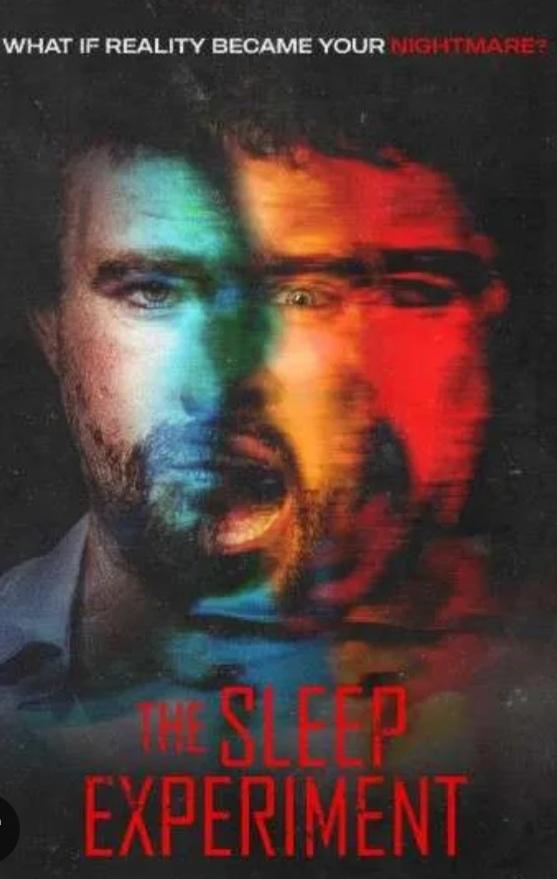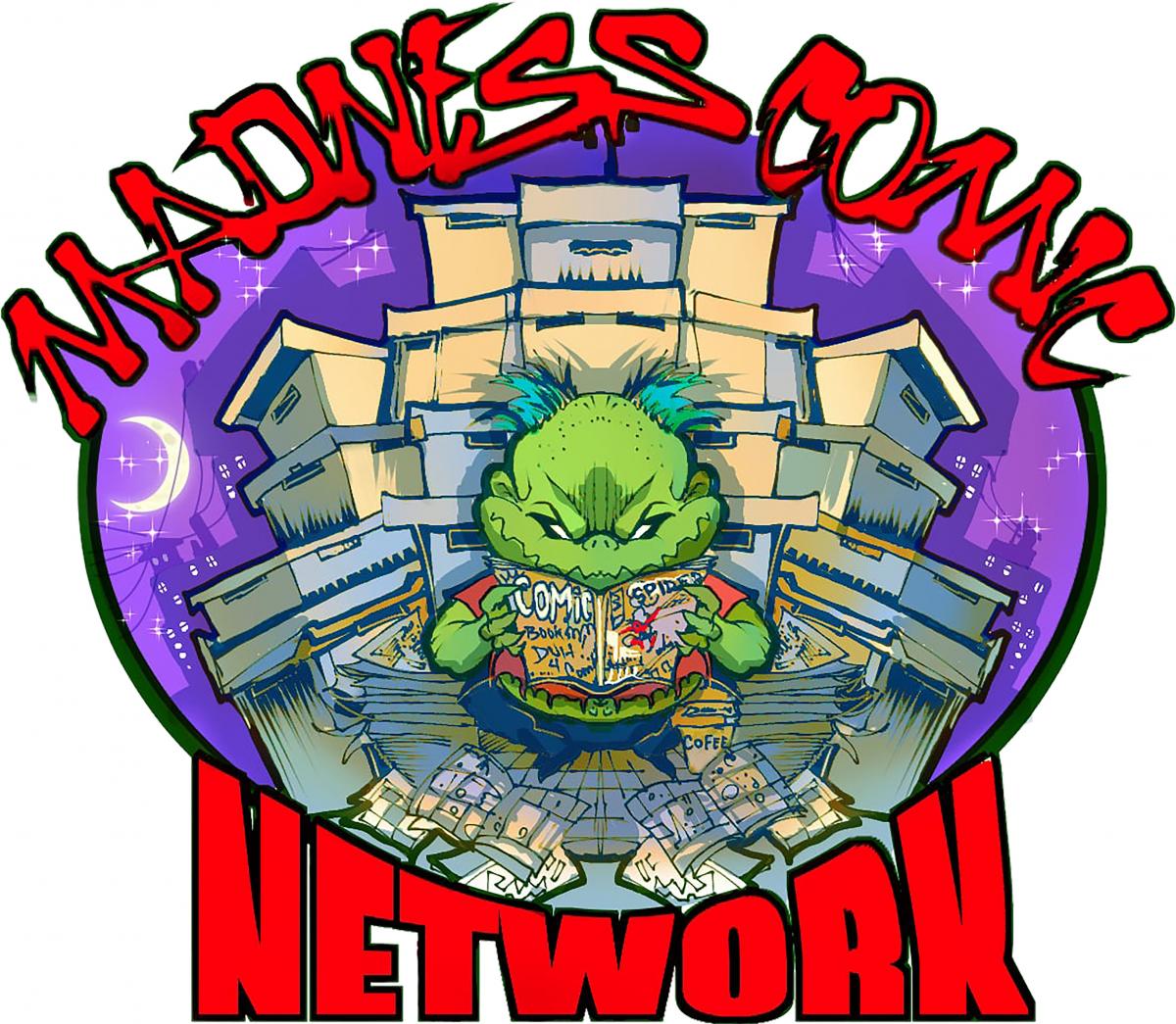You are here
Home › Movies › Red Water Entertainment/Jackpot Films' 'The Sleep Experiment' Is A Dark Depiction Of Humankind's Unsettling Inhumanity ›Red Water Entertainment/Jackpot Films' 'The Sleep Experiment' Is A Dark Depiction Of Humankind's Unsettling Inhumanity
FTC Statement: Reviewers are frequently provided by the publisher/production company with a copy of the material being reviewed.The opinions published are solely those of the respective reviewers and may not reflect the opinions of CriticalBlast.com or its management.
As an Amazon Associate, we earn from qualifying purchases. (This is a legal requirement, as apparently some sites advertise for Amazon for free. Yes, that's sarcasm.)

Sleep is one of the essential mysteries of existence. Each evening our bodies are compelled to shut down; our mental capacity slows, our muscles paralyze, and we wander unfettered through the shadowy dreamscapes of our subconscious. It’s estimated that fully a third of our fleeting life is spent under Morpheus’s spell; quite simply, we don’t want sleep, we need it, as surely as food and water. A good night’s rest restores the immune, nervous, skeletal and muscular systems, just as it enhances our mood, memory, sexual function and cognitive ability. Yet there exist a host of disorders--insomnia, hypersomnia, narcolepsy and sleep apnea; somnambulism, bruxism and circadian rhythm maladies--that can destroy sleep with dire consequences.
Research into sleep deprivation extends back more than a century. Italian experiments in the 1890’s discovered that sleep deprived puppies died within two weeks even if all their other physical requirements were met, and later human studies proved that extended periods of wakefulness produced significant intellectual disruption, hallucinations, wild personality changes, paranoia and eventual psychosis.
In the horror genre, sleep and its disturbances have offered fertile soil for philosophers, artists, authors and filmmakers throughout history. From ancient tales of the incubi and succubae who would mercilessly assault slumbering victims, to Francisco Goya’s famous painting ‘The Sleep of Reason Produces Monsters’, to Stephen King’s Doctor Sleep, Neil Gaiman’s epic graphic novel series ’The Sandman’ and Freddy Krueger’s numerous nightmare excursions on Elm Street, our innate nocturnal state is frequent fodder for fear. Now, Red Water Entertainment and Jackpot Films extend that lineage with The Sleep Experiment, a captivating foray into the bleakest corners of the human mind.
On May 16, 1961, five British convicts who have volunteered for the titular military study are brought to a secret underground facility and given the rules by which they must abide. The subjects, murderers all, are to be exposed to an untried stimulant gas, must complete regularly prescribed activities, obey any orders given by experimenters and, most importantly, avoid direct physical contact with their fellow prisoners. Each inmate is handed a journal to record their thoughts, and with an ample four-week supply of provisions, all they have to do is stay awake continuously for thirty days and they’ll earn their freedom. Things progress easily at first, but as time passes and the physiological and psychological toll increases, the tension palpably ratchets up; when one subject is suspected by the others to be an imposter planted by the scientists, the restrained plot effectively explodes.
The five prisoners are a criminologists’ case study; writer-director John Farrelly obviously invested considerable effort crafting each distinct personality: there’s Edward (Rob James Capel), a burly father whose vengeful quest for his daughter’s killer edged him into homicide; quiet, introverted Eric (Steven Jess), who strangled his workaday tormenter; level-headed Patrick (Sam McGovern), who meticulously writes about every action within the room in his diary. The main early conflict, however, lies between working-class Irish thug Sean (Brian Moore), a man haunted by the death of the mother he left behind, and smooth sociopathic manipulator Luke (Will Murphy), whose calm, calculated manner serves as the catalyst for the film’s ultimate descent into chaos.
Fifteen years after the experiment’s disastrous climax, the main researcher responsible for its creation, Dr. Christopher Sampson (the chilling Tom Kerrisk), is interrogated by investigators keen to learn what role he played in the prisoners’ brutal end. One of the detectives (Barry John Kinsella), has a familial connection the deceased inmates, and will stop at nothing to attain the answers he seeks. Yet the further he delves into Christopher’s psyche, the clearer it becomes the good doctor may be more monstrous than the murderers he tested upon.
This non-linear structure is what lends The Sleep Experiment a creative fission sorely lacking from its modern horror peers. Beginning in the past and lurching forward, backwards and sideways, we are presented with a merry-go-round mosaic that once assembled exceeds the sum of its parts, one where the bigger picture is substantially more complex than a dozen combined teens-in-peril slash fests. As a work of horror, the narrative’s closed-room claustrophobia slowly chisels at viewers, keeping them off-kilter and luring them into the study as readily as the prisoners. Never exposed to the outdoors, those tiny, confining onscreen walls make the audience bristle with unease, and the mounting madness ensnares our attention from first frame to last. A parallel duel-of-wits exists between Christopher and his accusers in 1976, and Luke and his fellow felons in 1961; as the coldly cunning mastermind, Murphy’s portrayal of Luke’s pitiless psychopathy is as riveting as it is believable. Likewise, Christopher’s explanation of a sociopath’s inner workings reveals his own character; not since Hannibal Lecter stalked the streets has a cinematic wolf disguised himself in sheepskin to such alarming effect.
Purportedly based by true events (though more likely inspired from a similarly-themed online creepypasta urban legend), The Sleep Experiment is precisely the kind of horror movie viewers robbed of genuine silver screen shocks deserve. Tight, character-driven, original and frightening, this is a dark depiction of humankind’s unsettling inhumanity that warrants the full 5 (out of 5) on my Fang Scale. One of the rare films I couldn’t figure out halfway through. Mesmerizing.


